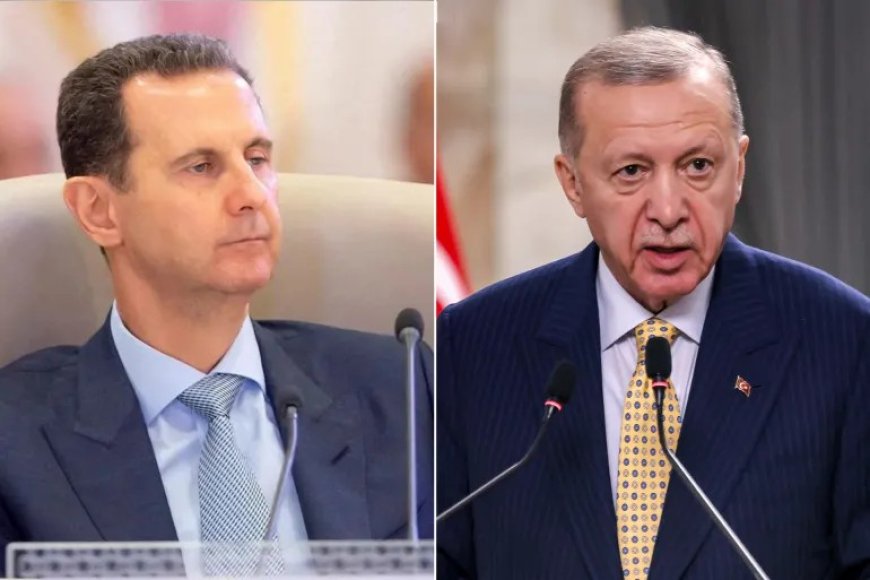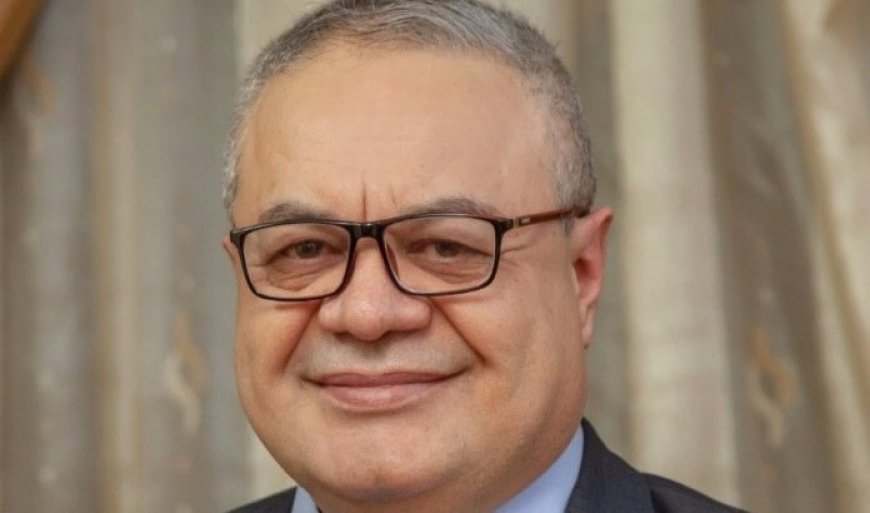Syrian writer: Normalization is inevitable if Turkey withdraws from Syria
A Syrian political analyst believes that launching a dialogue between the Autonomous Administration and the Damascus government will strengthen the latter’s position in the face of the Turkish occupation state, believing that normalization between Damascus and the occupying state is inevitable if the latter withdraws from the occupied Syrian territories, something that the occupying state rejects.

Discussions continue regarding the Turkish occupation state's attempts to normalize relations with the Damascus government. Despite Syrian President Bashar al-Assad's flexibility on the issue of normalization; he has confirmed that he is flexible to such initiatives without explicitly demanding Turkish withdrawal from occupied territories-Syrian official discourse has increasingly hardened in recent times.
About two weeks ago, the Syrian Foreign Ministry emphasized the need for Turkish withdrawal from occupied territories and the cessation of support for mercenary groups. Al-Assad reiterated these positions about a week ago in statements to the Syrian media.

Syrian writer and analyst Ahmed al-Darzi linked normalization to the Damascus government obtaining documented and written Turkish assurances with Russian-Iranian guarantees, through which Turkey is committed to withdrawing from all Syrian lands it occupies and dismantling its mercenaries within those areas.
However, the Turkish occupation state has not shown any willingness to withdraw from the occupied Syrian territories. It continues to occupy the areas of Ras al-Ain, Tal Abyad, Afrin, Jarabulus, Azaz, al-Bab, and large parts of Idlib in northwestern and north-eastern Syria. The Turkish state maintains dozens of military bases and points in these areas, where tens of thousands of occupying soldiers and mercenary groups are stationed. It also continues to launch attacks deep into Syrian territory.
The Syrian analyst and writer points out that the Damascus government aims to seize the opportunity presented by the Turkish authorities' need for rapprochement. This is seen as a quick solution to their internal and general Turkish problems, after Russia placed the responsibility on the Turkish authorities by highlighting the need for Turkey to cooperate with the Damascus government.
Al-Darzi stressed that dialogue between the Damascus government and the Democratic Autonomous Administration would strengthen the Damascus government's position against the Turkish occupation. “There is no doubt that a resolution between Damascus and Qamishlo plays a crucial role in achieving stability and strengthens Damascus' position against Turkish claims.”
The Autonomous Administration of North and East Syria has consistently affirmed its willingness to engage in dialogue with the Damascus government. However, the Damascus government has not reciprocated with a positive approach towards dialogue with the Autonomous Administration.
The Syrian writer and political analyst highlighted the international dimensions of the Syrian conflict, stating, the reality of the conflict in Syria underscores the international and regional dimensions of the crisis, which exert the most influence on the paths of the Syrian crisis. He further pointed to the groups' ties to the countries that support them, and therefore Damascus is striving to resolve the Syrian catastrophe. He believes that dismantling the regional and international aspects of the conflict should take precedence over internal issues, which would be automatically resolved if success was achieved regionally and internationally.
The United States of America explicitly rejected normalization between the Turkish occupation state and the Damascus government. In mid-July, after approximately four years of residence in the United States, the former governor of Deir ez-Zor Governorate, Samir Othman al-Sheikh, was arrested on charges of war crimes and crimes against humanity in Syria.
Earlier, some officials in the Turkish occupation state accused Iran of attempting to hinder the path to normalization.
Syrian writer and analyst Ahmed al-Darzi believes that the restoration of relations between the two parties is inevitable. However, he asserts that this is contingent upon several factors: the recognition of Syria's sovereignty over its entire territory, the cessation of Turkish interference in Syria's internal affairs, the dismantling of terrorist groups supported by Turkey, and the agreement of all parties involved in the Syrian crisis. These conditions, according to al-Darzi, are non-negotiable. The Turkish occupation state, however, has refused to comply with these demands.
T/ Satt.
ANHA














